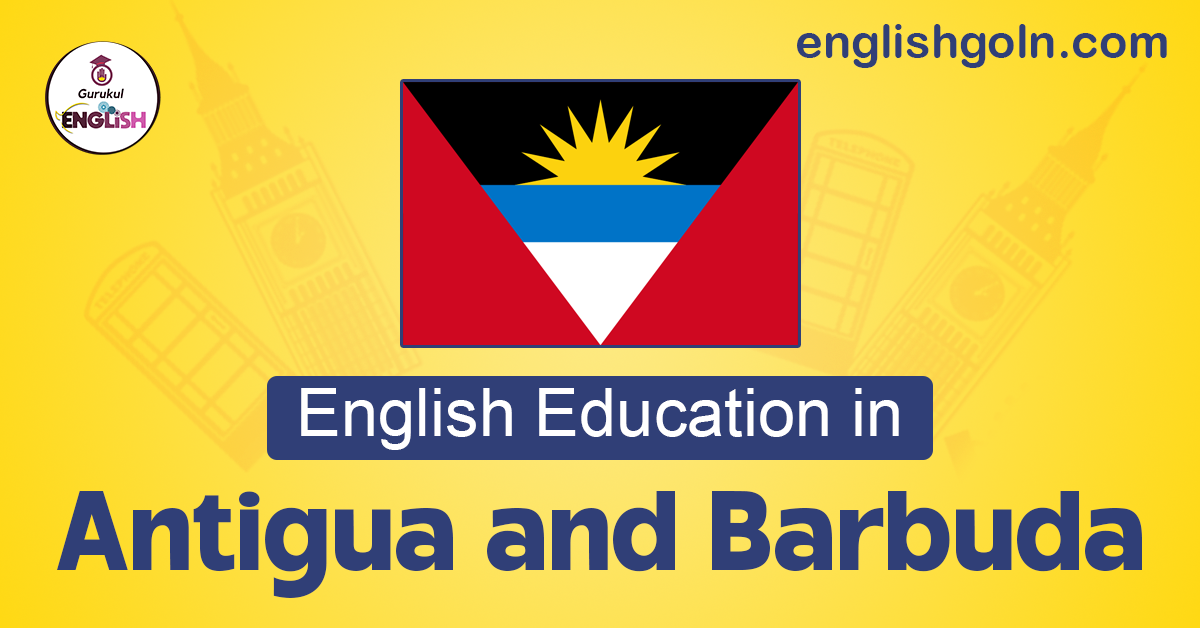Antigua and Barbuda, a beautiful twin-island nation in the Caribbean, places significant emphasis on English education as a foundation for personal and national growth. As a former British colony, English is the official language of the country, and its education system is designed to ensure that all citizens are proficient in this global language. This article explores the historical context, current practices, challenges, and opportunities of English education in Antigua and Barbuda, highlighting its role in empowering learners and promoting national development.
English Education in Antigua and Barbuda

Historical Background
Antigua and Barbuda’s history as a British colony profoundly influenced its language and educational practices. English was introduced during the colonial period and became the dominant language of governance, education, and communication. The British education system laid the foundation for formal education, with an emphasis on literacy and numeracy.
After gaining independence in 1981, Antigua and Barbuda retained English as the official language and continued to follow the British-influenced education system. However, there has been a growing recognition of the need to adapt the curriculum to reflect the country’s cultural identity and respond to the challenges of a changing global landscape.
Current English Education System
The education system in Antigua and Barbuda is structured into three levels: primary, secondary, and tertiary. English is taught as a core subject at all levels, and it serves as the medium of instruction for most subjects.
1. Primary Education:
At the primary level, English language education focuses on building a strong foundation in reading, writing, speaking, and listening. Students are introduced to basic grammar, vocabulary, and language conventions. The curriculum also emphasizes the development of critical thinking, creativity, and effective communication skills.
2. Secondary Education:
In secondary school, English education becomes more comprehensive, covering a wider range of literature, language analysis, and writing styles. Students explore various literary genres, including poetry, drama, and prose, from both local and international perspectives. The development of analytical and research skills is encouraged, enabling students to express their ideas effectively in written and oral form.
3. Tertiary Education:
At the tertiary level, English education extends to more specialized areas, such as literature, linguistics, and creative writing. Students can pursue degrees in English or related fields, preparing them for careers in education, media, publishing, and other language-related professions.
Empowering Learners through English Education
English education plays a crucial role in empowering learners in Antigua and Barbuda. It equips them with essential skills and knowledge, enabling them to participate actively in the global economy and engage with diverse cultures and perspectives. Here are some ways in which English education empowers learners:
1. Access to Information and Knowledge:
Proficiency in English provides learners with access to a vast repository of information and knowledge available in the English language. From academic research to global news and literature, the ability to comprehend and analyze English texts expands learners’ intellectual horizons.
2. Communication Skills:
English proficiency equips learners with effective communication skills, allowing them to express themselves articulately and persuasively. This skill is invaluable in various professional contexts, promoting career advancement and success.
3. Cultural Exchange and Global Citizenship:
As a widely spoken international language, English enables learners in Antigua and Barbuda to connect with people from diverse backgrounds and cultures. It fosters cross-cultural understanding, promoting a sense of global citizenship and enriching the country’s cultural fabric.
4. Educational and Career Opportunities:
English proficiency opens up educational and career opportunities for learners. It facilitates their participation in international exchange programs, scholarships, and employment opportunities beyond national borders.
5. Language as a Tool for National Unity:
In a country with a diverse population, English serves as a unifying language, promoting cohesion and a sense of national identity. It allows citizens from different linguistic backgrounds to communicate and interact effectively.
Challenges and Opportunities
While English education in Antigua and Barbuda has made significant strides, several challenges persist, along with opportunities for further enhancement:
1. Socioeconomic Disparities:
Socioeconomic disparities can impact the quality of English education. Schools in more economically disadvantaged areas may lack resources and experienced teachers, affecting students’ language proficiency and academic performance.
2. Teacher Training and Professional Development:
Effective English language instruction requires well-trained and motivated teachers. Investing in teacher training and professional development is crucial to improve instructional practices and foster innovative approaches to language learning.
3. Promoting Local Literature and Language:
While English is essential for global communication, promoting local literature and the use of Antiguan Creole (a local variant of English) in informal settings can help preserve cultural heritage and identity.
4. Integration of Technology:
The integration of technology, such as digital language learning platforms and online resources, can enhance English education’s effectiveness and accessibility, especially in remote areas.
Conclusion
English education in Antigua and Barbuda is a key pillar of the nation’s educational system, fostering language proficiency, critical thinking, and global engagement. While challenges exist, the country’s commitment to providing quality English education presents numerous opportunities for empowering learners and promoting national development. By continuously improving instructional practices, investing in teacher training, and embracing technology, Antigua and Barbuda can further strengthen its English education system and prepare learners to thrive in an interconnected world.
